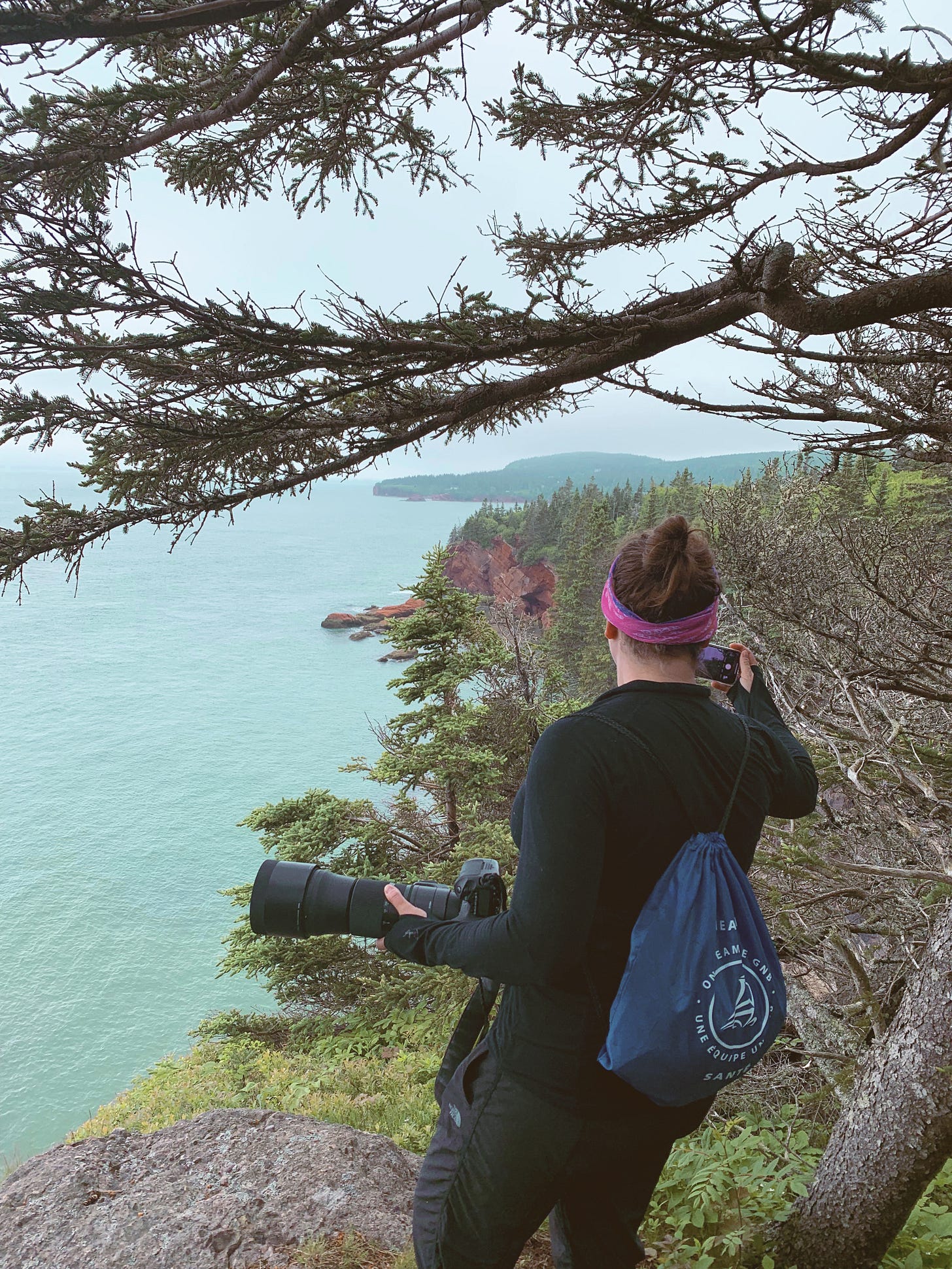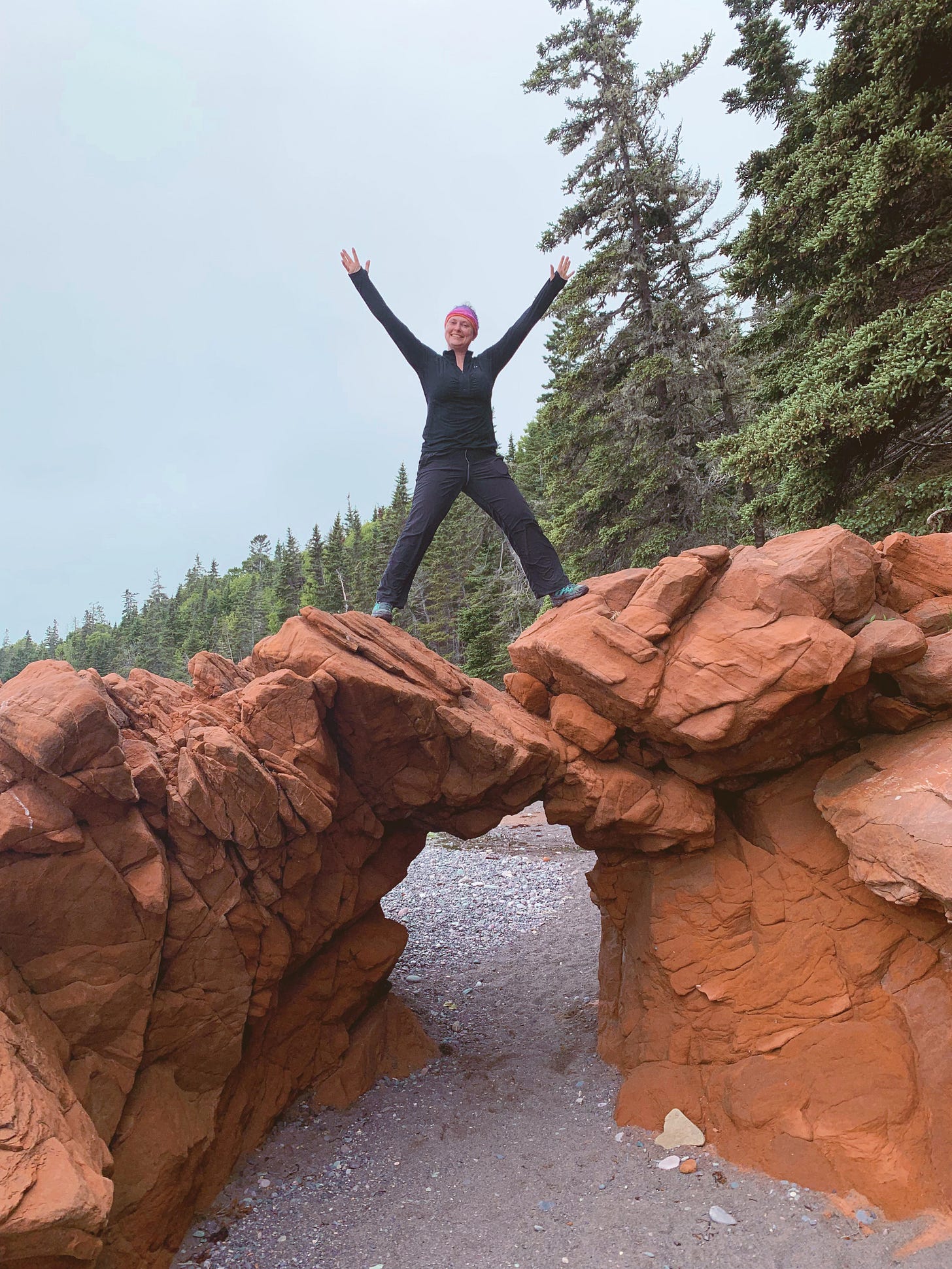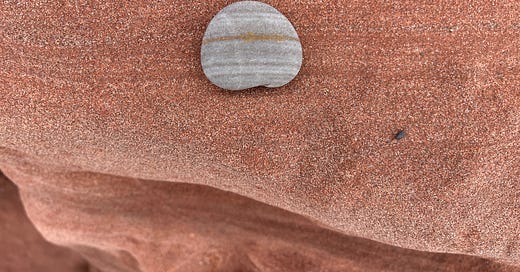#63: Sand, Water, and a Million Years Gone By
When did this hourglass get so small?

When you survey the red sandstone coastlines of the Bay of Fundy, you’re presented with an expanse of geological history. More than 250 million years ago, during the same Permian-Triassic period that gave witness to the breakup of supercontinent Pangea and the birth of the Atlantic Ocean, layers of sand, thick and thin, folded over the last in a colossal hour glass.
Two hundred and fifty million years ago. Taking a step back onto the trail, I shake my head in wonder. I’m never not astounded by such a number - nearly impossible to appreciate.
Then again, it doesn’t have to take massive numbers to blow my mind. Something as simple as two digits can hit me in the face with the force of a frying pan.
It’s perhaps those same two digits that create the slight unease, the thin veneer of agitation, draping over Ben and I. We don’t know why, as we plod along the West Quaco1 Lighthouse Trail and mull over the slight unease we’ve both felt over the past week. Maybe it was, and is, nothing more than the tectonic plates of our lives shifting a centimetre more; Father’s Day was the next day, and every chance I spend with mine highlights to me more the finiteness of our time together. How I squandered so much in earlier years, plied with others’ anger and hate. The week would end in another celebration - today - as we celebrate our second girl’s high school graduation. Twelve years of school, eleven of which I’ve been witness to, and now it’s her time to carve out a path forward. No one can stand in her way, the force and fierce intelligence she carries.

Another layer added to our respective storylines. Without subscribing to any form of woo, perhaps our subconsciouses knew more than either of us cared to admit.
Stepping through the ferns, weaving out from the forest to a clearing on a cliffside, then retracting back into the shade of the trees, we breathe in deep gulps of the briny ocean air. Maybe you, too, have a place that soothes your fiery souls - a valley perfumed with wildflowers, or an open plain of grasses bending gently in a breeze. For me, it’s the cool Atlantic breezes that oscillate with the waves that lap at the smoothed rocks they’ve just carefully deposited for our inspection. Where we live, the ocean rises and falls in world-record heights and lows in twelve hour cycles, and with it, the weight of my worries.

At the end of the trail, we scale down to Browns Beach, tinted red with pulverized sandstone, with understones of black shale2. As you might now imagine, the beach is a precious place, but especially in the summer. It stores much nostalgia; my younger self spending many a day lounging on a blanket with snacks and the latest read for the local library’s summer reading club. Nowadays, I try to get at least one solid beach day, with no agenda or time limit, but lots of ocean air and changing tides. Lots of time to indulge, although it never really is much time, is it?

To stand back and look at it all - the coastline, my loved ones - it can feel overwhelming: the minute additions over time, then the jumps with larger events. Breaking of continents, chapters closing and new ones starting.
A million years, or twelve, but both in the blink of an eye.
Speaking of summer reading clubs: Have I mentioned that I’m now reviewing books for The Miramichi Reader? Check out my reviews, as well as those of two other Substackers you may know: Alison Manley from , and James Fisher from
The origin of the name ‘Quaco’ is Mi’Kmaq (spelled Goolwagagek) meaning ‘haunt of the hooded seal’. In 1718 an English translation emerged as ‘Roquaque’. The Loyalist translation by the Kings Orange Rangers of 1784 gives us Quaco.
For a truly black beach, I’ll bring you to one next time near my childhood home.





So cool!
Your essay reminds how cool it is to live where you can see the ebb and flow of tides, the water hiding then revealing constantly, letting you see the landscape anew. Kind of like your writing. Nice one, and it reminds me that my favorite place is not dissimilar: it’s a place called Deception Pass. I may have to write about it sometime.